This is how Benjamin Franklin starts his ‘sermon’:
‘Time is money’: no one has better expressed the absolute power of this earthly deity that governs even the categories of our experience than Benjamin Franklin, in the opening words of his Advice to a Young Tradesman (1748), cited prominently by Max Weber, who explores the idea in the second chapter of The Protestant Ethic and the Spirit of Capitalism.
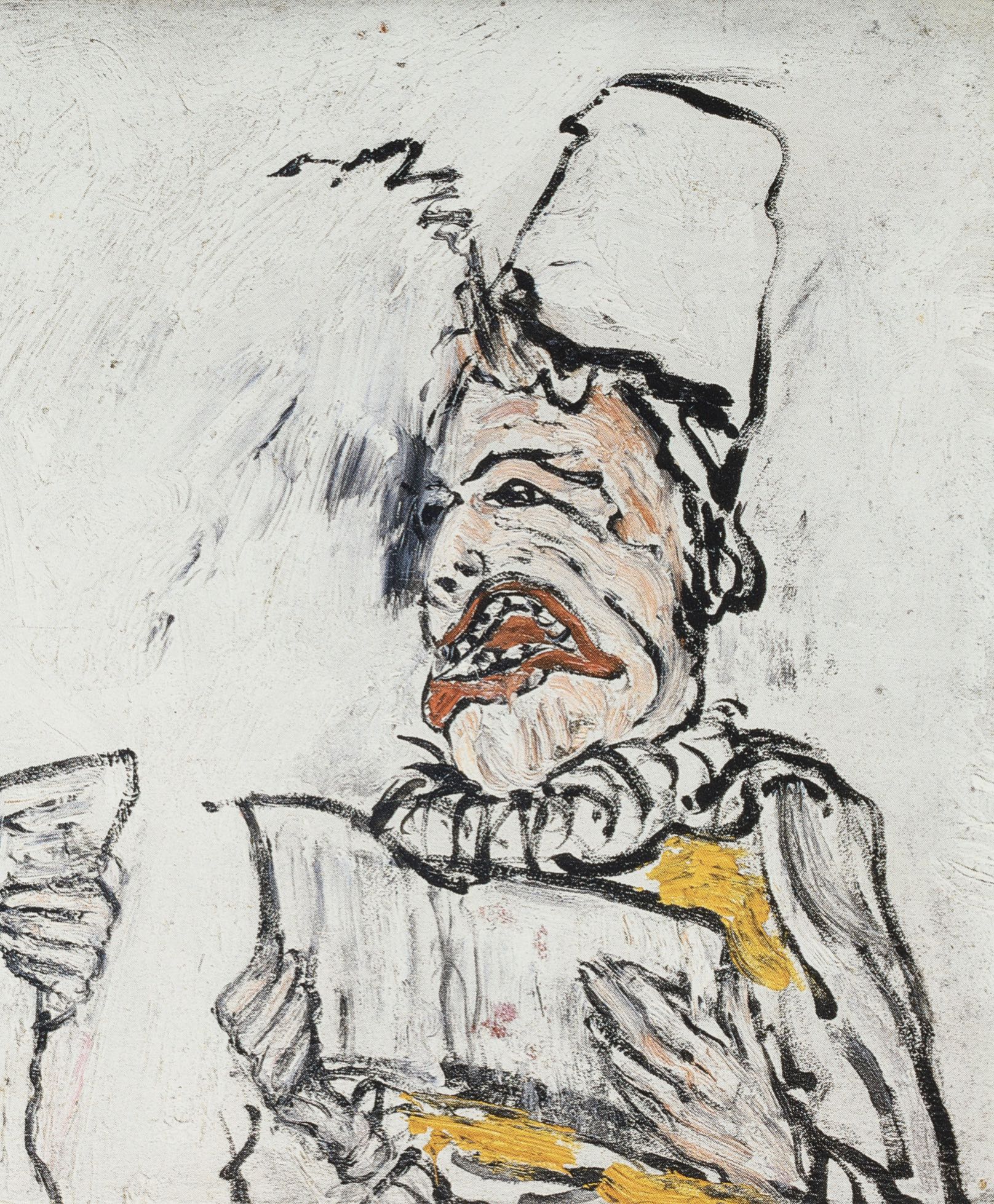
James Ensor, Groteske Zangers [Grotesque singers], 1891 (detail)
Remember that Time is Money. He that can earn Ten Shillings a Day by his Labour, and goes abroad, or sits idle one half of that Day, tho’ he spends but Sixpence during his Diversion or Idleness, ought not to reckon That the only Expence; he has really spent or rather thrown away Five Shillings besides.
Remember that Credit is Money. If a Man lets his Money lie in my Hands after it is due, he gives me the Interest, or so much as I can make of it during that Time. This amounts to a considerable Sum where a Man has good and large Credit, and makes good Use of it.
Remember that Money is of a prolific generating Nature. Money can beget Money, and its Offspring can beget more, and so on [...]. The more there is of it, the more it produces every Turning, so that the Profits rise quicker and quicker. He that kills a breeding Sow, destroys all her Offspring to the thousandth Generation.
This simple lesson, which today we all know by heart, teaches us something that has enormous consequences, as we may see all around us. And although money is today entrusted, primarily, to the ‘science’ of economics and finance, it bears within itself eternal and powerful questions that spill over into other fields: theology, anthropology, psychoanalysis, sociology, etc. Nowhere in our world is money not king, or at least a kingmaker. Which is why, today, we speak of money – of its presence or absence, its superabundance or scarcity – as once we spoke of God. Which is not so odd, considering that questions of metaphysics and faith reside today, more an ever, in money (suffice it to recall the etymology of the work ‘fiduciary’). This is why, since Aristotle, it has been a constant object of enquiry for philosophers and a question for the Church, clearly present in the discourse of recent popes, who, in the Vatican’s financial scandals, felt at close quarters the threat posed by the profane power of money.
The nature of money is far from being a question for economists. The American philosopher John Searle defined it as ‘a function of status’. What he meant was that money is assigned a function that can only be realised by virtue of our collective acceptance of that status. In other words: money has value by virtue of a tacit collective agreement, because we all think that money has value. It is the beginning and end of everything: it generates ventures, crises, hallucinations and megalomania, and is the driving force behind acceleration, change, discontinuities and inequalities. Omnipresent, omnipotent and omniscient. It is reason in a state of exasperation, dialectically converted into madness, as suggested by the title of a book by Alain Minc, an unexpected economic liberal and a business leader: L’argent fou.
To think about money today is to think about something that crosses the world in a flash, shaping the world and everything that happens in it, from the economy to politics, from society to culture, and from journalism to religion, as if it knew no bounds. In this vast field, several approaches and perspectives can help to clarify what we are talking about when we talk today about money.
This examination of money, taking in a truly vast field, owes much to a philosopher and sociologist (or perhaps a philosopher sociologist) called Georg Simmel. In the final decade of the nineteenth century, Simmel became aware of the dilemmas and pathologies of the modern age. The result was The Philosophy of Money (1900), a grandiose work that forms the foundation for all his subsequent writings on modern civilisation. It offers a historical appraisal that seeks to apprehend the cultural meaning and anthropological impact of money, the relationship it has established with human life and its profound and unavoidable implications for our relationship with others, ourselves and the world. Seen in this way, money falls into the category of social phenomena that have repercussions in all domains of society and its institutions, phenomena described by Marcel Mauss as ‘total social facts’. If, for Simmel, money is the starting point for a diagnosis of the present, it is because it has taken on capital importance in the modern world. Or, as Marx says in his critique of political economy, ‘Money has become the sole nexus rerum’, in other words, the knot that binds us all together.
As is true of much of his writing, Simmel’s appraisal in The Philosophy of Money presents itself as a hermeneutics of surface phenomena: a specific material manifestation of modern life is raised to a sense where ‘a direct line [is traced] from the surface of economic becoming to the ultimate meanings of man in his entirety’, as we may read in the preface. Starting from the idea that economic exchanges are a primeval form of socialisation, Simmel was able to see that money is what makes all goods commensurable, even if their values in use are utterly disparate, and he digs deeper into Marx’s reflections on money as the ‘general equivalent’. For the author of The Philosophy of Money, this points two ways: on the one hand, money is value that serves as a form of measurement in trade and a way of representing value, whilst, on the other hand, it is reduced to a mere ‘sign or symbol’ of potentially no value, ‘as a mathematical symbol that substitutes valueless values’. Hence, Simmel concludes, the more money becomes purely symbolic, the more it evolves, from ‘substance-money’ to ‘function-money’, serving as a universal connector between human beings. But this connection is purely abstract, just like the existence of men and women in the great metropolises (which, for Simmel, were a laboratory in which the modern ‘life of the spirit’ was distilled). Simmel had no way of knowing how far this abstraction would go, or what hyperbolic state the financialisation of the economy would reach in our time, but in many ways his philosophy of money is astonishingly far-sighted. He saw more clearly than any of his contemporaries how money owes its value to being a means but has finished up becoming an ultimate end: finally, there is no desire which is not that for money, which is the actual potency of desire, pure power/desire. ‘The internal polarity of the essence of money,’ writes Simmel, consists in the fact that, although it is an absolute means, it has become, psychologically, for the subjective spirit, an absolute end, a ‘God on earth’, omnipotent, a symbol of the late modern age in which all of man’s life has been frozen into the architecture of the monetary economy. Or, as Marx wrote, money is a universal power capable of ‘reducing representation to the condition of reality, and reality to the condition of simple representation’. Money, at least in the form traded on the exchanges, produces an uprooted, floating and capricious humanity, lacking internal unity. A neutral ‘man with no qualities’, beyond good or evil. Simmel saw in this the origin and cause of the depersonalisation of modern man, both socially and individually. Indeed, the only property that defines money and characterises it as such is quantity; the sole basis for assessing its magnitude is quantitative. It is through quantity that it gains intensity. And the first law of money is flow: money flows and makes things flow; it crosses continents at high speed, often at the speed of light. Capitalism is based on this circulatory logic of money, ‘live currency’. ‘The circulation of money is how debt is rendered infinite,’ as Deleuze and Guattari wrote in Anti-Oedipus. Some would prefer to say ‘absolute debt’, like that owed to God. There are good reasons for this at junctures when – as we experienced so keenly only a few years ago – the connecting line between the words ‘debt’ and ‘blame (culpa)’ becomes clear. According to a venerable doctrine that has given rise to so much speculation, life itself is indebted. And money is the form taken by this natural debt. To understand it only in the light of monetary economics would be to fail utterly to discern its origin and reach, and the surfeit it produces by holding our lives captive.
*Translated by Clive Thoms
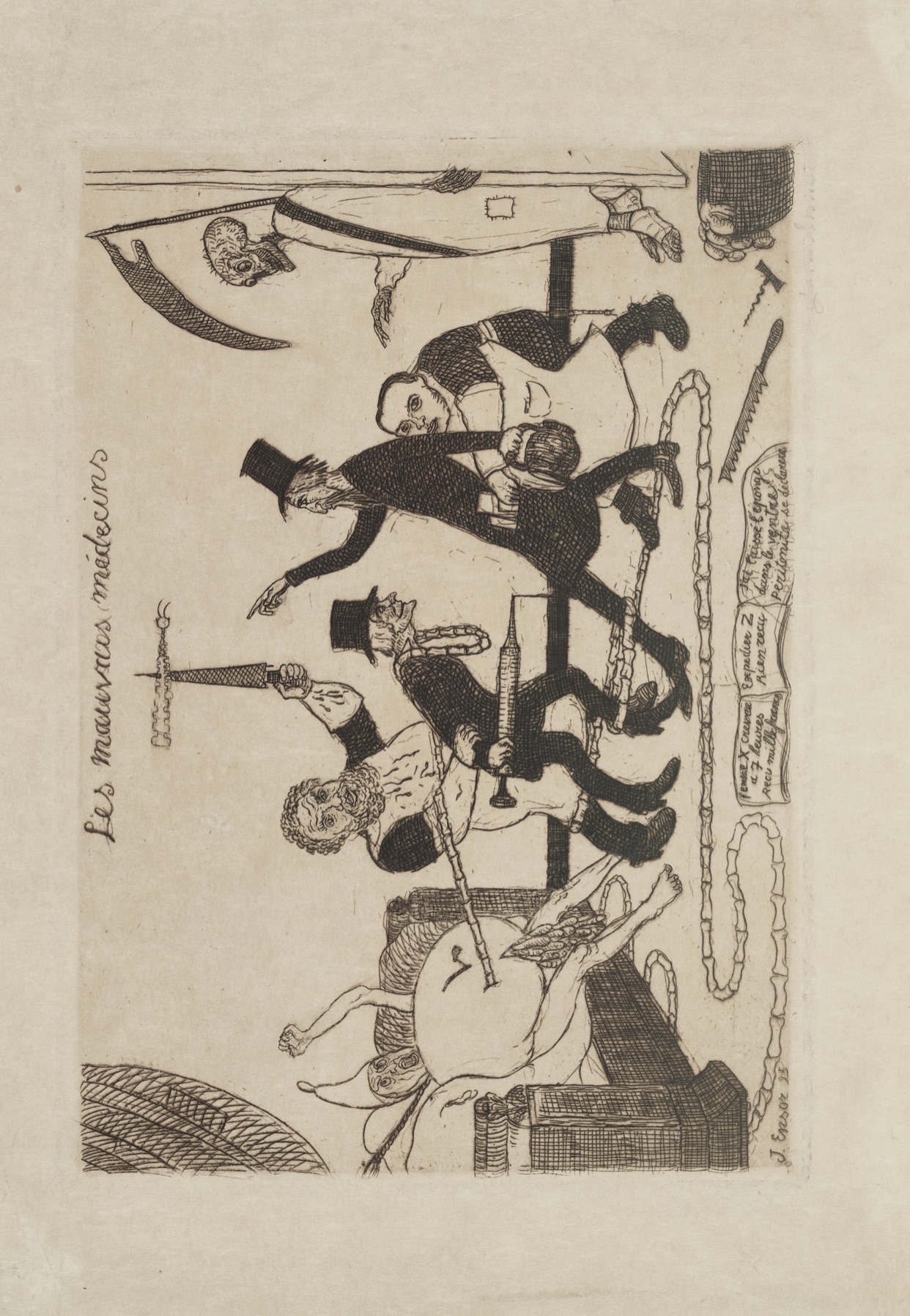
James Ensor, Les mauvais médecins [The Bad Doctors], 1895
© Photo: Scala, Florence / The Museum of Modern Art, New York

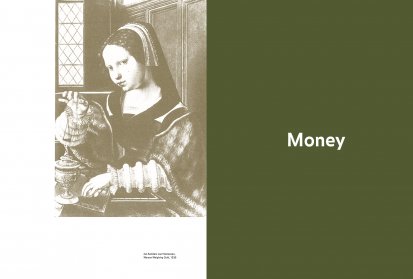
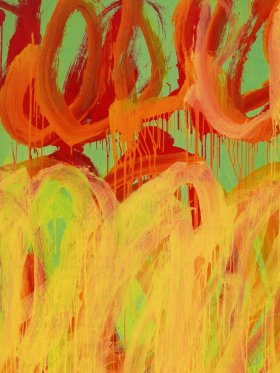
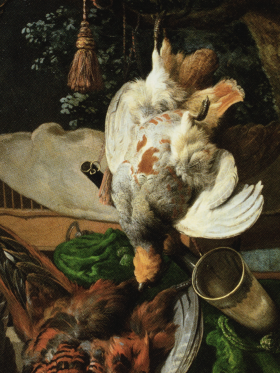
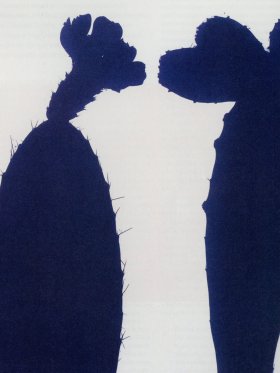
Share article